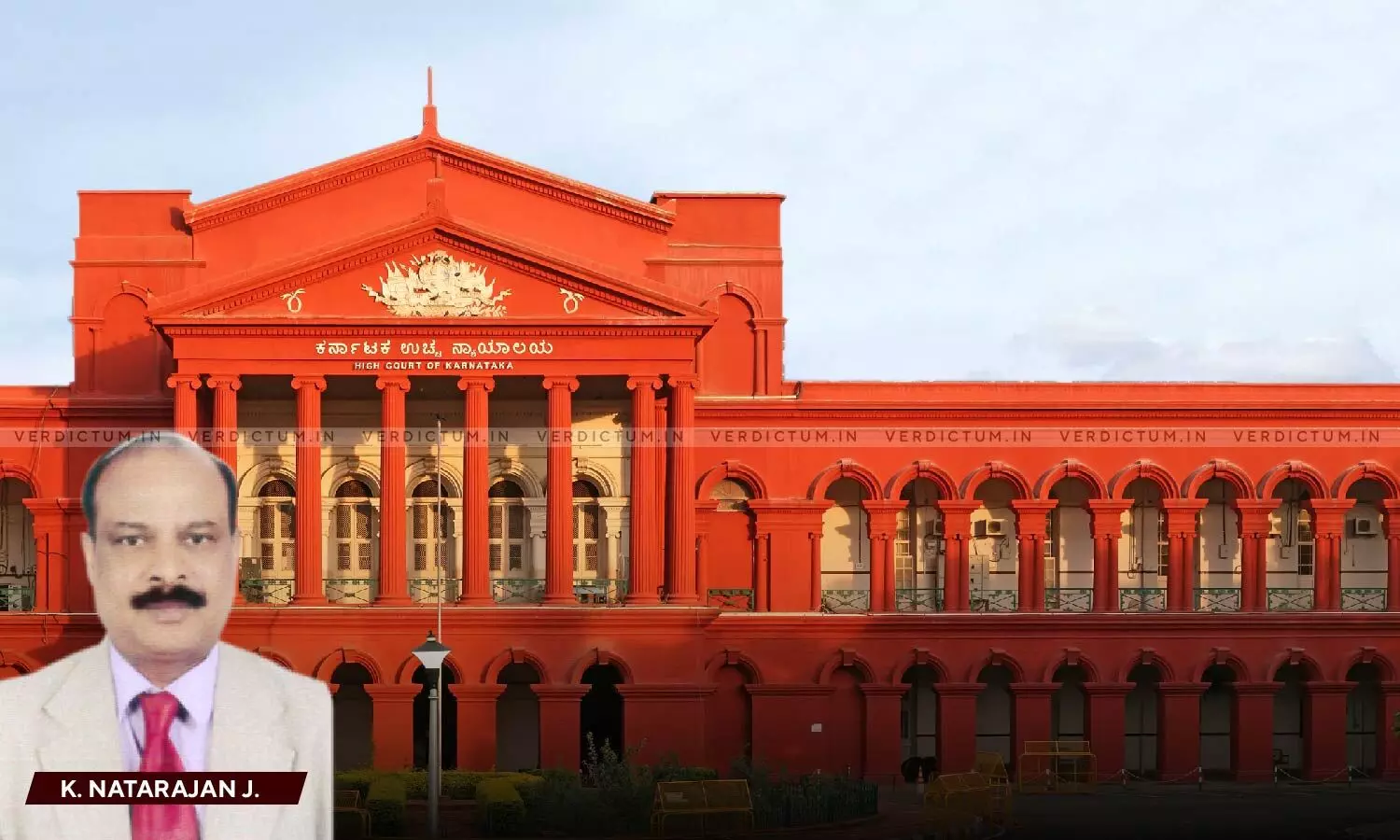
Could Have Brought Deadly Weapons In Order To Commit Murder: Karnataka HC Reduces Sentence Of Accused Who Squeezed Man’s Testicles
 |
|The Karnataka High Court has reduced the sentence of an accused who squeezed his enemy’s testicles during a quarrel. It said that he could have brought some deadly weapons with him in order to commit murder.
A Single Bench of Justice K. Natarajan held, “… the quarrel took place during the Narasimhaswamy procession in their village, where it cannot be said that there is no light, whereas the witnesses have stated that there was light and lamps were carried by the persons during the procession. There was a quarrel between the accused and the complainant on the spot. During that quarrel, the accused chosen to squeeze the testicles. Therefore, it cannot be said that the accused came with an intention or with preparation to commit murder. If at all, he has prepared or attempt to commit murder, he could have brought some deadly weapons with him in order to commit murder.”
The Bench observed that at such a stage, it cannot be said that the accused as a preplan brought any deadly weapons with an intention to commit murder.
Advocate Rajendra S. Ankalkoti appeared on behalf of the appellant i.e., the accused while HCGP Rashmi Jadhav appeared on behalf of the respondent i.e., the State.
Factual Background -
An appeal was filed by the appellant/accused under Section 374(2) of Cr.P.C. for setting aside the judgment of conviction and order of sentence passed by the Principal Sessions Judge. The accused was found guilty and convicted and sentenced to undergo imprisonment for 7 years for the offence punishable under Section 307 of the IPC, 1 month for the offence punishable under Section 341 of IPC, and 1 year for the offence punishable under Section 504 of IPC.
As per the prosecution’s case, the accused came in front of the complainant's motorcycle by staring at him, and in the night when the complainant and others were dancing in front of the procession of Narasimhaswamy in the village fair, the accused with an intention to commit murder, came and picked up a quarrel, abused him in filthy language and squeezed his testicles and caused inner injuries to the vital part. The accused was arrested and sent to judicial custody but later got released on bail and thereafter, the trial court found the accused guilty and convicted him being aggrieved by which he approached the High Court.
The High Court in view of the above facts noted, “On perusal of the reasoning assigned by the trial Court as well as the injury caused to the testicals of PW.1, it is admittedly a vital part of the body and in a general view, if any injury caused to the testicles, if he has not treated, it leads to the death, therefore, it cannot be said that the appellant have no knowledge about causing injury to the private part which may leads to the death. However, by looking to the incident, as per the evidence of the witnesses, there was enmity between PW.1 and the accused as PW.1 gave evidence against the accused in some other proceedings before the Additional District Court, Chikmagaluru. Therefore, on that background, he has picked up quarrel.”
The Court further noted that though the accused had chosen the testicles which is the vital part of the body that may cause death and the injured was taken to the hospital, also underwent surgery and the testicles was removed which is a grievous hurt but it cannot be said that the accused with an intention or preparation had attempted to commit murder.
“The injury caused by the accused could be brought under Section 325 of IPC by causing grievous injury by squeezing the private part which is the vital part of the body”, held the Court.
The Court, therefore, confirmed the judgment of the trial court in respect of an act of assault by the accused squeezing the testicles and modified the finding of the trial court from Section 307 of IPC to Section 325 of IPC. It further reduced the sentence of the accused to three years and imposed a fine of Rs. 50,000/- and upheld the sentence under Sections 341 and 504 of IPC.
Accordingly, the Court partly allowed the appeal.
Cause Title- Parameshwarappa v. The State